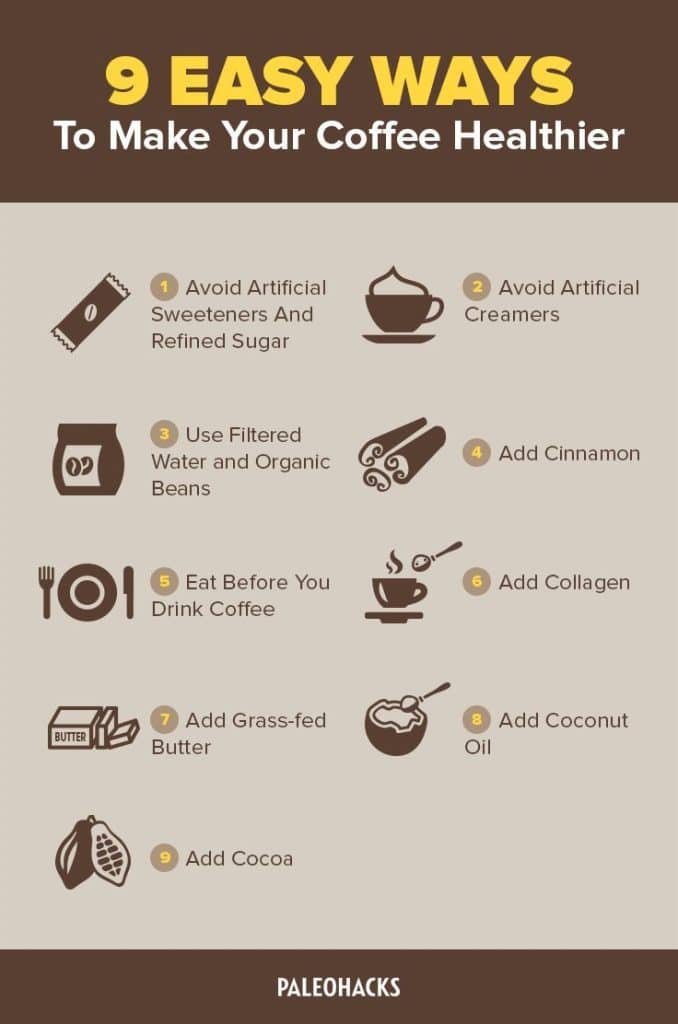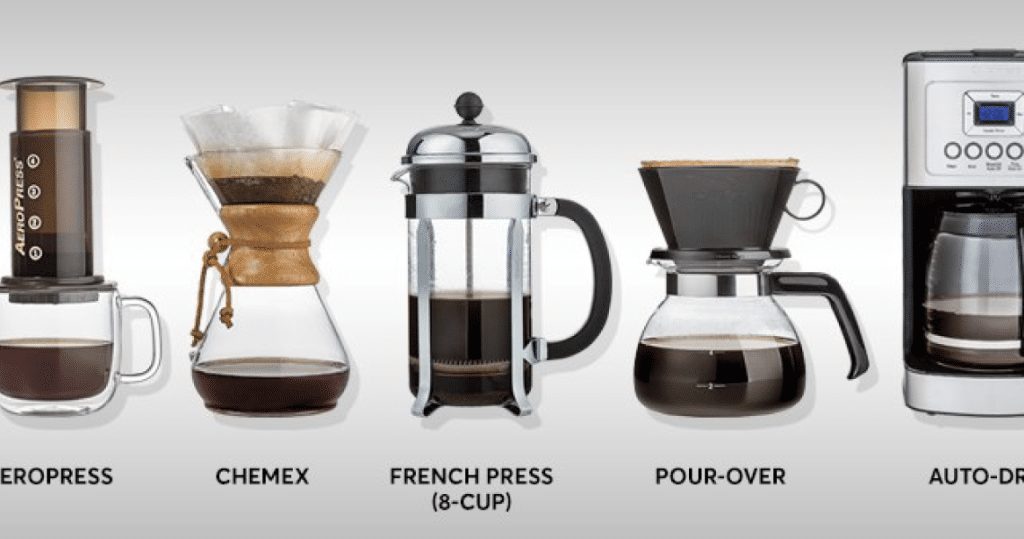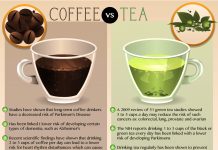You’re a coffee lover, and you’ve probably heard conflicting opinions on whether your beloved beverage is good or bad for your health.
But fear not, because, in this article, we will explore the question on your mind: what is the healthiest way to drink coffee?
Whether you enjoy it black, with milk, or prefer a fancy latte, we will uncover the secrets to enjoying your daily cup of joe while keeping your health in check.
So please sit back, grab your favorite mug, and let’s uncover the truth about coffee and its impact on your well-being.
Choosing the Right Coffee
When choosing the proper coffee, there are a few factors to consider. First and foremost, opt for organic coffee.
Organic coffee is grown without synthetic pesticides or fertilizers, making it a healthier choice for you and the environment. Look for coffee that is certified organic to ensure that you are getting a truly organic product.
Next, select a high-quality coffee bean. The coffee bean’s quality significantly affects your coffee’s taste and aroma. Look for freshly roasted beans with a rich, full-bodied flavor. Arabica beans are known for their superior quality, while Robusta beans tend to taste more bitter.
Consider the roast type that suits your taste preferences. Light roast coffee beans have a milder flavor with more acidity, while medium roast beans have a balanced flavor profile. Dark roast coffee beans have a bold, intense flavor with less acidity. Experiment with different roast types to find the one you enjoy the most.
Lastly, check for certification. Look for coffee certified by organizations such as Fairtrade or Rainforest Alliance, as these certifications ensure that the coffee is produced ethically and sustainably.
Brewing Methods
Once you have chosen the proper coffee, it’s time to decide on a brewing method. There are several popular brewing methods to choose from, each with its unique characteristics.
Drip brewing is perhaps the most common method, using a drip coffee maker to brew your coffee. This method is convenient and produces a consistently good cup of coffee.
French press brewing involves steeping coffee grounds in hot water and pressing them down with a plunger. This method results in a full-bodied and flavorful cup of coffee.
Pour-over brewing is a manual method that involves pouring hot water over coffee grounds in a slow and controlled manner. This method allows for greater control over brewing and produces a clean and bright cup of coffee.
Cold brew is a method that involves steeping coffee grounds in cold water for an extended period, usually overnight. This method produces a smooth and mellow cup of coffee with lower acidity.
Choose the brewing method that aligns with your preferences and experiment with different methods to find your favorite.
Coffee-to-Water Ratio
Finding the ideal coffee-to-water ratio is essential for brewing a delicious cup of coffee. The ratio refers to the amount of coffee grounds used relative to the amount of water.
Start by following the general guideline of 1 to 2 tablespoons of coffee grounds for every 6 ounces of water. This ratio can be adjusted based on your taste preferences. Use more coffee grounds if you prefer a more robust cup of coffee. If you prefer a milder cup, use less.
Experimenting with different ratios is critical to finding your perfect cup of coffee. Please keep track of the ratios you use and note how they affect your brew’s taste and strength.
Water Quality
The water quality you use to brew your coffee can significantly impact its taste. You should use filtered water to remove any impurities and ensure a clean and pure taste.
Avoid tap water, especially with a strong chlorine taste or odor. Tap water can contain impurities that affect the flavor of your coffee. Investing in a water filter or bottled water can help improve the quality of your coffee.
In addition to using filtered water, it’s essential to determine the proper water temperature for brewing your coffee. The optimal temperature for brewing coffee is between 195°F and 205°F. If the water is too hot, it can over-extract the coffee, resulting in a bitter taste. The coffee may taste weak and under-extracted if the water is not hot enough.
Finding the right water quality and temperature will enhance the flavor of your coffee and ensure a more enjoyable drinking experience.
Avoiding Artificial Additives
While it’s tempting to add artificial sweeteners, flavored creamers, and syrups to your coffee to enhance its taste, avoiding these artificial additives is best.
Artificial sweeteners, such as aspartame or sucralose, may have adverse health effects and can contribute to cravings for sugary foods. Instead, opt for natural sweeteners like honey or stevia, which add sweetness without the artificial additives.
Flavored creamers often contain artificial flavors, preservatives, and added sugars. Instead, try using a splash of almond, oat, or coconut milk for a creamy and dairy-free alternative.
Similarly, artificial syrups that flavor coffee can contain high amounts of sugar and artificial additives. Instead, add spices like cinnamon or nutmeg to your coffee for a natural and flavorful twist.
By avoiding artificial additives, you can enjoy the authentic flavors of your coffee and make a healthier choice.
Serving Size and Frequency
It’s essential to find a balance when it comes to coffee consumption. Limiting your consumption to moderate amounts is critical to maintaining a healthy lifestyle.
The Dietary Guidelines for Americans recommend consuming no more than 400 milligrams of caffeine per day, equivalent to about 4 cups of brewed coffee. Consuming excessive amounts of caffeine can lead to adverse side effects such as jitters, increased heart rate, and difficulty sleeping.
It’s also important to consider your caffeine sensitivity. Some individuals are more sensitive to caffeine than others and may need to limit their intake even further. Pay attention to how your body reacts to caffeine and adjust your consumption accordingly.
Lastly, avoid consuming coffee late in the day. Caffeine can disrupt sleep patterns, making falling and staying asleep harder. Enjoying your coffee earlier in the day is best to avoid any potential sleep disturbances.
You can enjoy your coffee without compromising health by finding the correct serving size and frequency.
Timing Matters
Understanding the effects of caffeine on sleep is essential for maintaining healthy sleep patterns.
Caffeine is a stimulant that can stay in your system for several hours. Consuming coffee or other caffeinated beverages late in the day can interfere with your ability to fall and stay asleep.
It is generally recommended to avoid consuming caffeine at least 6 hours before bedtime. This allows enough time for your body to metabolize the caffeine and reduce its stimulating effects.
If you often have trouble sleeping, consider limiting your coffee consumption to earlier or switching to decaffeinated coffee in the afternoon and evening.
By being mindful of the timing of your coffee consumption, you can ensure a restful night’s sleep.
Minimizing Negative Health Effects
While coffee can have many health benefits, it’s essential to be mindful of certain factors that may increase the risk of adverse health effects.
If you are pregnant, it is recommended to reduce your caffeine intake. High caffeine intake during pregnancy has been associated with an increased risk of preterm birth and low birth weight. It’s best to consult with your healthcare provider for specific recommendations.
Another factor to consider is the acrylamide content in coffee. Acrylamide is a chemical that forms when coffee beans are roasted at high temperatures. High levels of acrylamide have been linked to an increased risk of cancer. To minimize your exposure to acrylamide, opt for lighter roast coffee beans and avoid consuming burnt or over-roasted coffee.
Individuals with certain health conditions, such as gastroesophageal reflux disease (GERD) or irritable bowel syndrome (IBS), may need to monitor their coffee intake. Coffee can trigger acid reflux or digestive discomfort in some individuals. It’s best to consult with a healthcare professional if you have any health concerns.
By being aware of these factors and making informed choices, you can minimize any potential adverse health effects of coffee consumption.
Adding Nutritional Value
Coffee can be a part of a healthy diet when you add nutritional value to your cup.
Instead of adding refined sugar to your coffee, use natural sweeteners like honey or maple syrup. These sweeteners provide additional nutrients and antioxidants compared to refined sugar.
Adding milk or cream to your coffee can also provide nutritional value. Choose healthier alternatives like almond, oat, or coconut milk, which are lower in saturated fat and cholesterol than traditional cow’s milk. These non-dairy milk alternatives also offer additional nutrients like calcium, vitamin D, and vitamin E.
Incorporating spices into your coffee can also boost its nutritional value. Cinnamon, for example, is rich in antioxidants and has anti-inflammatory properties. Nutmeg, ginger, and cardamom are other spices that can add flavor and health benefits to your coffee.
By choosing nutrient-rich additions to your coffee, you can make it a more wholesome part of your diet.
Pairing with a Balanced Diet
While coffee can be enjoyed independently, it can also be a part of a balanced and healthy meal plan.
Include coffee in a meal with whole grains, fruits, vegetables, lean protein, and healthy fats. This ensures that you get various nutrients from different food groups.
Consider the overall nutritional intake of your diet. If you have a coffee habit, ensure you still meet your daily nutrient needs. It’s essential to have a well-balanced diet that includes a variety of nutrient-dense foods.
By pairing coffee with a balanced diet, you can enjoy its benefits while maintaining a healthy lifestyle.
In conclusion, choosing the healthiest way to drink coffee involves considering various factors such as the type of coffee, brewing method, water quality, avoiding artificial additives, serving size and frequency, timing, minimizing adverse health effects, adding nutritional value, and pairing it with a balanced diet. By making informed choices and experimenting with different options, you can enjoy a delicious cup of coffee while prioritizing your health. Cheers to a good cup of coffee and a healthier lifestyle!










































